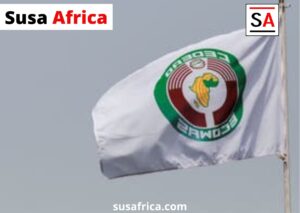The Soninke people are a West African Mande-speaking ethnic group found in Mali, southern Mauritania, eastern Senegal, The Gambia, and Guinea (especially Fouta Djallon). They speak the Soninke language, also called the Serakhulle or Azer language, which is one of the Mande languages. The Soninke language belongs to the northwestern Mande group but through the dynamism of its speakers has loaned many words and concepts to distant ethnic groups throughout the West African ecological zones.
The Soninke are an ancient West African ethnicity that probably gave rise to the much larger group that is called the Mande of which the Soninke are part. Soninke people were the founders of the ancient empire of Ghana or Wagadou c. 200–1240 CE, Subgroups of Soninke include the Jakhanke, Maraka and Wangara. When the Ghana empire was destroyed, the resulting diaspora brought Soninkes to Mali, Mauritania, Senegal, Gambia, Burkina Faso, Côte d’Ivoire, Guinée-Conakry, modern-day Republic of Ghana, Kano in Nigeria, and Guinea-Bissau where some of this trading diaspora was called Wangara.

The Soninke traditionally engage in both trade and agriculture. During the rainy season, men and women both cultivate. However, women usually stay at home to cook and take care of their children. They also do others work, such as dyeing cotton material. A typical Soninke color is Indigo. The Soninke attained a high standard of living. Emigration took a huge place in their life. Most of the time women, children and old stay at home alone when the young men go to neighbor cities to find money. Since the 1960s, the majority of West African immigrants in France came from this ethnic group. The Soninke are still now the backbone of countries like the Gambia, Senegal and Mali. Through all history they have been traders in gold, salt and even diamonds.

Also, known by a variety of names, including Sarakole, Diankanke, and Wangarawa, the Soninke were one of the early ethnic groups from sub-Saharan West Africa to convert to Islam in about the 10th century. The Soninke people were a coastal trade link between the Berber people of Maghreb and the Empires in sub-Saharan West Africa. In their early history, they helped exchange salt from the north and western coast for gold found inland. This trade brought Muslim traders to them, particularly Arab traders interested in gold, after Islam arrived in North Africa. The earliest passing mention of Soninke people’s Ghana Empire is found in the works of the 8th century Arab geographer Muḥammad ibn Ibrāhīm al-Fazārī and a more complete record is found in works of another 11th century Arab geographer Al-Bakri.
Read Also: Gembu: A historical Bantu Homeland in Nigeria
The Soninke have a variety of foods. As an example, breakfast foods include “fonde”, porridge made of millet, sugar, milk, and salt, and “Sombi” porridge made of rice, millet or corn. For lunch “demba tere” and “takhaya” are very common, both containing rice and peanuts, frequent Soninke ingredients. “Dere”, a stew, is a mixture of millet and beans.

In Senegal, as elsewhere, marriage is seen as a major family event. It is celebrated joyously. In countries Soninke, customs relating to its celebration may vary from one locality to another, but all in common that they are available murundé (research), the Tamma (symbolic franc) and futtu (the definitive agreement wedding) above the festivities.






































Be First to Comment